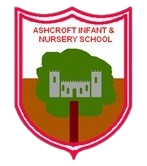School Curriculum Statement
Curriculum Statement
Governing bodies are required to produce a curriculum statement annually. This replaces the requirement under the School Framework and Standards Act 1998 for a curriculum plan.
Our Curriculum Intent
As an infant and nursery school, we passionately believe in developing the whole child. Not only do we want to educate our children but we also want to nurture them and help them grow into well rounded individuals. We know that getting the basics right and laying the foundations academically and emotionally at this early stage will support future successes if done well. To enable this to happen, we need our children’s first experiences of school to be positive and successful. We achieve this by ensuring that we know our children as individuals and that we provide a curriculum that is interesting and engaging for all our children which in turn leads to them becoming successful learners. We believe this approach gives them a safe and secure start to their formal education. We work closely with our feeder junior school to ensure curriculum progression between key stages 1 and 2.
When our children join our Nursery or Reception class, we endeavour to build strong relationships with parents, recognising that for many of them, this is their first contact with a school since they left school themselves. We want to work with parents to help children develop values to enable them to recognise and understand their feelings; to be able to reflect and express these and then to begin to develop coping mechanisms and resilience through skills and language. We want them, at an age appropriate level, to understand that they have a contribution to make to our community and the wider society.
We want our children to be enthusiastic learners who gain independence and have a good understanding of their place in the world. We want them to have and to be excited about learning. We want them to learn empathy with an understanding of diversity and to be open-minded. This is particularly important in our context, which is predominantly white-British.
Our Curriculum Implementation
We recognise that the school curriculum encompasses all experiences that we offer to the children. We evaluate and review our school curriculum regularly to ensure that it continues to meet the needs of our children and context.
We have spent significant time building our knowledge of pedagogy, with particular reference to our very young children. Our model of learning is built upon our understanding of learning being defined as an alteration in long term memory. We see this as an ascending spiral, starting with prior knowledge, having a logical sequence of steps leading to a defined outcome, be it at the end of a lesson, unit, year or key stage. We know that children learn best when the curriculum is designed so that skills are transferable across subjects and children can make links in their learning. We always start from the child’s prior knowledge and our progression maps ensure that skills are developed in a logical sequence of steps and in sufficiently small ‘chunks’ to enable our young children to process them into long-term memory.
We offer a broad and rich curriculum to engage and enthuse our children. We recognise, however, that in Early Years and Key Stage 1, our focus must be on ensuring that children are able to read, write and use mathematical knowledge, concepts and operations. This is the key driver of our curriculum and is non-negotiable, as we know that all children need this solid grasp of basic skills in order to achieve as they move on in their education.
Assessment of the curriculum
We use formative and summative assessment processes both to help us identify next steps in learning and to enable us to make accurate judgements of both attainment and progress. Our assessment processes enable us to identify any gaps in knowledge or skills and to adapt our planning to fill these gaps. Knowledge gained by regularly reviewing our assessment processes and outcomes, enable us to continue to develop our school curriculum to inform and improve on future curriculum design.
Our Curriculum Impact
We know that our curriculum is good because we have a thorough monitoring process that triangulates all aspects of teaching and learning including, lesson observations; book scrutiny; pupil voice and data through a single ‘teaching over time’ process. Our teachers work in year group teams to ensure consistency in planning and delivery of the curriculum. We liaise closely with our feeder junior school who confirm the strength of our curriculum, enabling them to build on our children’s prior knowledge from the start of Year 3.
